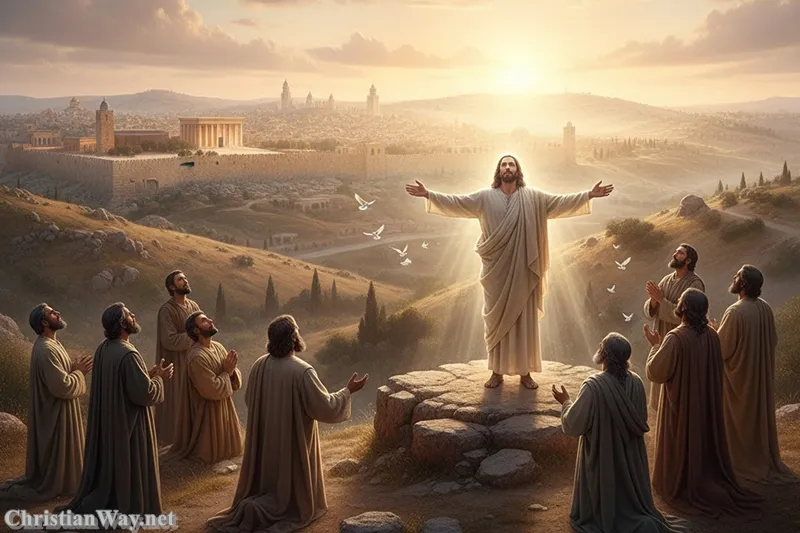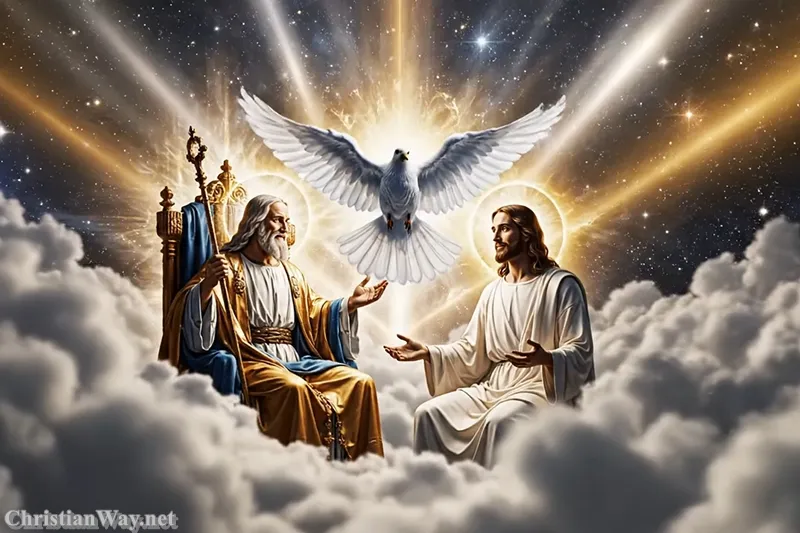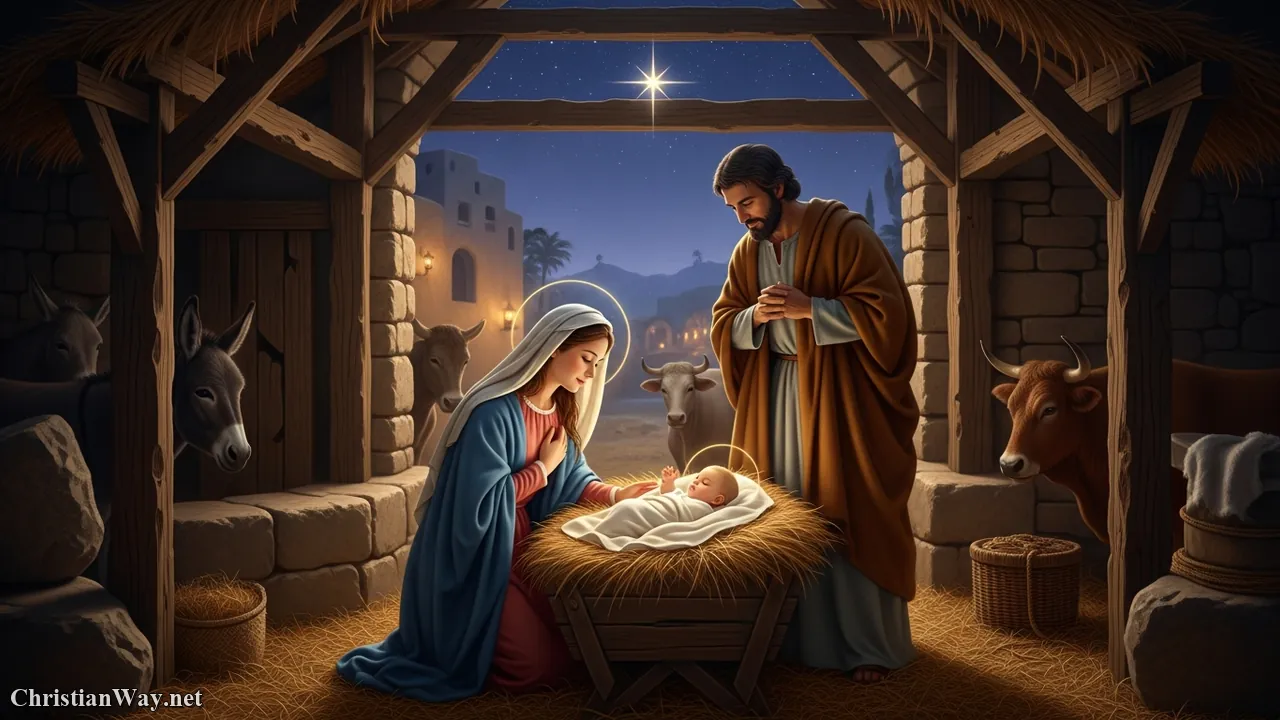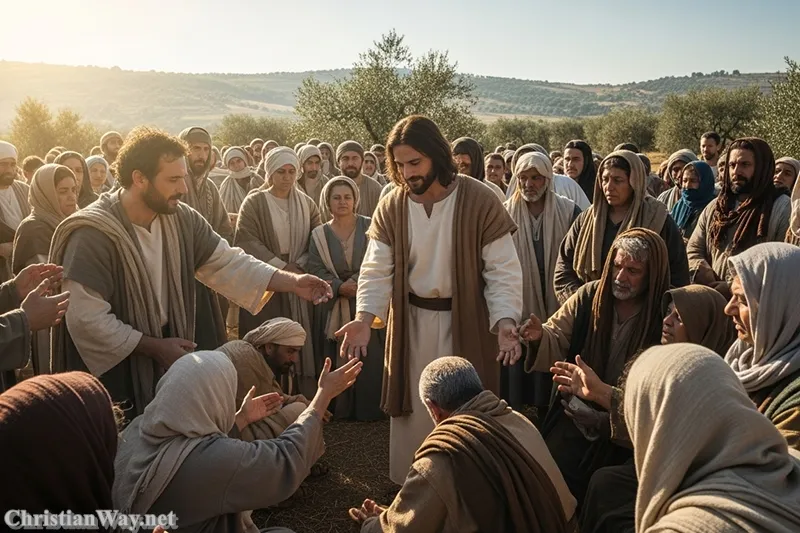Dear friends in Christ,
Every faith story begins with a question — a question that rises not only from the human heart but from history itself: Where did it all begin? For Christians, that question leads us back not to an idea, a philosophy, or a moral code, but to a Person — Jesus Christ, the Son of the living God. The origin of Christianity is not a tale of human invention; it is the unfolding of divine love in human time, the moment when eternity entered history, and God’s covenant took on a human face.
Christianity was born not from theory but from encounter — from men and women who met the risen Christ and were forever changed. What began as a small gathering of disciples in a remote corner of the Roman Empire became a living body that would reshape civilization and reveal God’s mercy to every generation. To understand the origin of Christianity, we must journey through three intertwined stories: the faith of Israel, the life of Jesus, and the birth of His Church. Each is a chapter in one great divine narrative — the story of God seeking humanity.
The Promise Prepared: The Roots in Israel
The story of Christianity begins long before the manger of Bethlehem or the Cross of Calvary. It begins with a promise — a promise spoken to Abraham when God said, “In you all the families of the earth shall be blessed” (Genesis 12:3). That promise shaped a people, Israel, through whom God would reveal His faithfulness.
Through the Law and the Prophets, through exile and return, Israel learned to hope for the coming of the Messiah. The Psalms sang of Him; Isaiah foresaw a suffering servant; Micah foretold His birth in Bethlehem. Every covenant — with Noah, Abraham, Moses, and David — carried within it a growing anticipation of fulfillment.
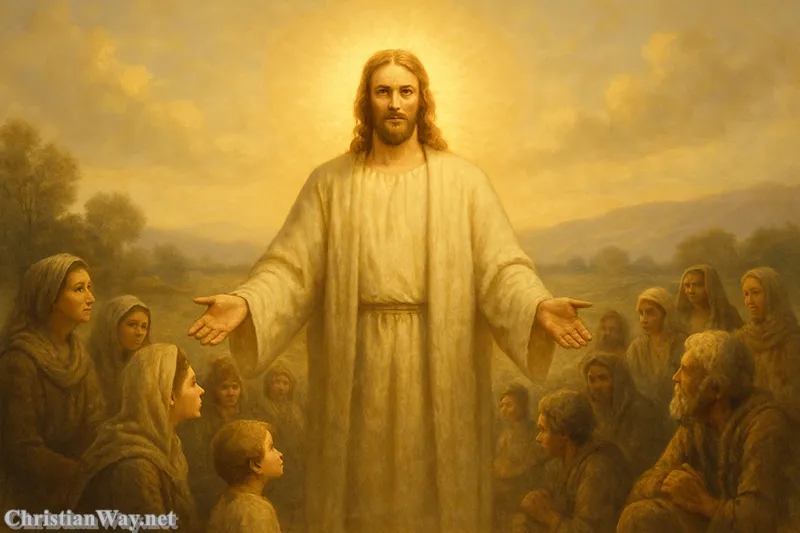
Christianity, therefore, is not a break from Israel’s story but its completion. The Old Testament is not replaced but fulfilled in the New. As St. Augustine said, “The New Testament lies hidden in the Old, and the Old is unveiled in the New.”
When Mary said “yes” to the angel’s message, the centuries of longing found their answer. The Word through whom all things were made entered the world He Himself created. The eternal Son became the Son of Mary — the hinge of history turning from promise to fulfillment.
The Word Made Flesh: The Life and Ministry of Jesus
At the heart of Christianity stands Jesus Christ — not merely a moral teacher or prophet, but “the Word made flesh” (John 1:14). His life revealed God’s love in motion: healing the sick, forgiving sinners, restoring outcasts, and proclaiming that the Kingdom of God had come near.
When Jesus preached, He spoke with an authority that astonished His hearers — as one who did not interpret truth but was Truth. “I am the way, and the truth, and the life,” He declared (John 14:6).
Through His parables, He opened the mysteries of grace. Through His miracles, He revealed the power of divine compassion. And through His presence among the poor and the lost, He revealed the Father’s heart — a heart that longs to gather every soul home.
Yet the life of Jesus was not only about words and wonders; it was a journey toward the Cross. There, on Calvary, the divine plan reached its climax. The Lamb of God, foretold since the days of Abraham, bore the sin of the world. The very One through whom life began embraced death — not as defeat but as victory.
And on the third day, the tomb stood empty. The resurrection was not simply a miracle of history; it was the new creation of all things. The Risen Christ breathed the Spirit upon His disciples, turning fear into courage and sorrow into mission.
From that moment, Christianity began not as a memory of Jesus but as His living presence — a presence that continues in His Church through the Holy Spirit.
The Birth of the Church: From Pentecost to the World
The Book of Acts records the moment when the promise of Jesus became the heartbeat of a new community. On Pentecost, as the Holy Spirit descended like wind and fire, the apostles spoke in every tongue, and the Church was born.
That day marked not merely the beginning of an institution but the birth of a Body — the Body of Christ. The disciples, once hidden in fear, became bold witnesses of the Resurrection. St. Peter’s first sermon brought thousands to faith. The same Spirit that hovered over the waters of creation now breathed new life into the hearts of believers.
From Jerusalem, the Gospel spread across Judea and Samaria, and to the ends of the earth. St. Paul, once a persecutor of Christians, became its greatest missionary, proclaiming that in Christ there is neither Jew nor Greek, slave nor free, male nor female — for all are one in Him (Galatians 3:28).
The early Christian communities lived with profound simplicity and devotion. “They devoted themselves to the apostles’ teaching and fellowship, to the breaking of bread and the prayers” (Acts 2:42). Persecution came swiftly, but so did holiness. The blood of martyrs became the seed of the Church, and their witness carried the flame of faith across empires.
By the end of the first century, Christianity had taken root in every major city of the Roman world. Its message of forgiveness and resurrection was unlike any other. Empires would rise and fall, but the Church — founded on Christ — endured, as He promised: “The gates of hell shall not prevail against it” (Matthew 16:18).
The Faith of the Apostles: Scripture, Tradition, and Creed
From its beginning, Christianity was a faith both lived and confessed. The apostles handed down not only the written word — the Gospels and Epistles — but the living tradition of worship, teaching, and prayer.
The early Church did not invent doctrine; it bore witness to what had been revealed. In time, the Creed emerged — the baptismal confession that declared, “I believe in God, the Father Almighty… and in Jesus Christ, His only Son, our Lord.”
The canon of Scripture and the witness of tradition together preserved the unity of faith. As the Church Fathers explained, the same Spirit who inspired the Scriptures guides the Church in understanding them. Christianity is therefore not a collection of private interpretations, but a communion of believers who share one faith, one baptism, one Lord.
The Heart of the Gospel: God’s Love Revealed
If we look beneath the layers of history, theology, and culture, the origin of Christianity is ultimately the revelation of divine love. As St. John wrote, “God so loved the world that He gave His only Son” (John 3:16).
This love is not abstract; it is incarnate. It entered a manger, walked dusty roads, wept over human suffering, and stretched out its arms on the Cross. Christianity begins and ends in love — love stronger than sin, stronger than death, stronger than despair.
Every doctrine, every sacrament, every moral teaching is rooted in this reality: God’s desire to dwell with His people and make them holy. Christianity is not primarily about rules but about relationship — a living covenant with the God who became one of us.
The Church in the World: A Continuing Mission
From its birth, Christianity has been a missionary faith. The Great Commission — “Go therefore and make disciples of all nations” (Matthew 28:19) — is not a command of conquest but an invitation to communion.
Throughout the centuries, the faith has crossed languages, cultures, and continents. From the deserts of Egypt to the cathedrals of Europe, from the coasts of Africa to the forests of Asia and the Americas, the Gospel has been carried by countless hearts who heard Christ’s call and followed.
Each generation receives the same mission: to bear witness to Christ through word and deed. The origin of Christianity is not merely behind us — it continues wherever hearts are converted, wherever the poor are served, and wherever love conquers hatred.
The Mystery of Continuity: One Faith Through Many Branches
Over time, human weakness led to divisions — theological, cultural, and political. Yet beneath these differences, the core of Christianity remains one and unchanging: faith in Jesus Christ as Lord, the Son of God made flesh, who died and rose for our salvation.
Whether in Catholic, Orthodox, Protestant, or Anglican traditions, every Christian baptism unites believers to that same beginning — the same Jesus who called fishermen by the sea of Galilee.
In this unity, we glimpse again the beauty of Christianity’s origin — a faith not built by human wisdom but by the Spirit’s power.
A Faith Born in Hope
Christianity emerged not from triumph but from hope — from the empty tomb and the whisper of angels saying, “He is not here; He has risen.” It began among the poor and the persecuted, among those who had little but believed greatly.
That same hope sustains the Church today. The light that first shone in the Upper Room continues to burn in every heart that believes. The history of Christianity is not finished; it is still being written in the lives of believers who, like the first disciples, rise each day to follow Christ.
Reflect and Pray
As we look upon the long story of our faith, let us remember that Christianity began with an encounter — and it is through encounter that it continues. Christ still walks beside us, still calls us by name, still invites us into the same love that moved the hearts of fishermen, tax collectors, and saints.
May we never forget that the Church’s origin is not a moment locked in the past, but a living mystery — Christ alive in His people.
Lord Jesus Christ, You who are the beginning and the end, renew in us the wonder of Your Gospel. Let our hearts burn as we hear Your Word, and our lives bear witness to Your resurrection. May we, like the first disciples, rise to follow You and carry Your light into the world.
— Fr. John Matthew, for Christian Way

